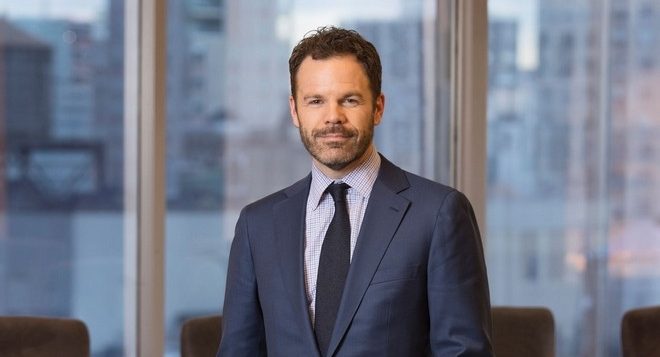Custody issues keep the investment out of institutional portfolios
Newly developed cryptocurrency index funds are targeting institutional asset owners such as pension funds and endowments, but the lack of custody capabilities in the asset class is keeping these investors from jumping in.
While there are more retail-oriented custodians such as Kingdom Trust and Coinbase Inc. that have capabilities in bitcoin, ethereum and other cryptocurrencies, the main players in institutional custody — Bank of New York Mellon (BK) Corp. (BK), State Street Corp. (STT), Northern Trust Corp. and J.P. Morgan Chase & Co. — have not built up their crypto business, sources said. And in institutional investing, they added, it’s all about being comfortable with the custodian.
“For chief investment officers, there’s only downside risk in cryptocurrency,” said Blake Estes, counsel, financial services, and co-leader of blockchain and distributed ledger technology at Alston & Bird LLP, New York. “It would take a leap of faith with a new custodian with no brand recognition. That presents a real risk for them.”
Matthew Hougan, vice president and global head of research at Bitwise Asset Management Inc., San Francisco, added that compared to family office and high-net-worth investors, pension funds, endowments and foundations “are the furthest away from making substantial allocations to this space. They have the most questions on the fundamental drivers of returns. They’re also in the position of career risk. The drawdowns that can happen in cryptocurrency can be difficult to bear career-wise.”
Mr. Hougan, whose firm in December introduced the Bitwise Hold 10 Private Index Fund, which tracks the 10 largest cryptocurrencies based on market capitalization and trade volumes, said that CIOs who would take a chance on cryptocurrency “might do it with the index category because it’s more simplified. Investing through the index fund is an easier way for them to make their first asset-class bet.”
But that simplification might not be enough. No asset owner investment executives contacted for this story would comment on the record. One CIO said cryptocurrency index funds were a non-starter for the pension fund investments he oversaw because “you don’t know what’s backing the assets.” Added another pension fund CIO: “I wouldn’t want to take a chance on this. Where’s the assets backing this? How secure is it? And who is watching it?”
Easing concerns
Such worries will be soothed once major custodians are on board with cryptocurrency, said Jonathan Benassaya, founder and CEO of IronChain Capital, San Francisco, whose firm in May introduced cryptocurrency index fund IronChain MiX10 and IronChain MiX10 Institutional, which track the MithrilX MiX10 index of the top 10 cryptocurrencies based on market cap.
“You read about cryptocustody because of general news about data hacking and security. They want it safely stored in a vault, like gold,” Mr. Benassaya said. “Who will have the key to that vault? The level of custody in crypto is the same as with other assets, except that crypto is self-cleared through the blockchain. Custodians are not so far away from making this happen.”
What’s key to being comfortable in cryptocurrency investing is, in fact, knowing who holds the keys, said Mr. Estes of Alston & Bird.
“Bitcoin is transferred through a math problem that, when it’s solved, creates a key — 64 digits that are unique to the transaction,” Mr. Estes said. “The key would be the same as cash. Like custodians that have historically held a client’s cash in a vault, there are vaults with these keys. So much of the security of bitcoin and other cryptocurrency rests with who stores that private key, who controls the vault. Blockchain (the technology behind the transfer of assets) itself can’t be hacked, but it all still boils down to who ends up holding the keys. I’d tend to think that pension funds will not venture into uncharted territory until they’re certain about the security of who has custody of the keys.”
Most custodians contacted for this story either would not comment or did not return calls, although Northern Trust, Chicago, said in a white paper June 21 that most major banks “are awaiting the right regulatory framework in which to operate (in cryptocurrencies) with full investor protections.”
“Northern Trust is taking a cautious approach toward cryptocurrencies given the current lack of asset class definition by regulators and government. This approach is mirrored by other banks around the world,” said the white paper, “Cryptocurrencies: What You Need to Know.”
Although there are many concerns associated with cryptocurrencies, “Northern Trust believes that digital currencies, with appropriate regulatory oversight, are likely to play a role in shaping future developments in our industry and we are actively working with industry associations to advocate and contribute to the development of policy and regulatory frameworks.”
3 main issues
Three issues — regulatory hurdles, liquidity and cybersecurity — are the main concerns for larger custodians around cryptocurrencies, said John Lore, managing partner, Capital Fund Law Group PC, New York, whose clients are managers of hedge funds and alternative investments.
“If you want a long-term storage of assets in a digital wallet, there are regulatory ways of doing that, but none that are recognized across the large custodians,” Mr. Lore said. In terms of liquidity, he added, custodians aren’t brokers and therefore must trade cryptocurrencies through brokers outside of a vault. “Once there, it’s an asset that’s very easy to lose, through computer failure or hacking,” Mr. Lore said. “At the core, that’s a major risk issue.”
Also, because cryptocurrency development is in its early stages, “it’s really too soon to determine what cybersecurity risks will need to be dealt with,” Mr. Lore said. “There aren’t enough custodians who are capable of handling that risk yet.”
Major custodians in general haven’t been vocal about their work on cryptocurrency asset servicing, said Mark Kinoshita, senior vice president, trust, custody and securities lending, at Callan LLC, San Francisco.
“There hasn’t been a whole lot publicly announced, so people out in the public domain have been left to piece together things,” Mr. Kinoshita said. “I don’t know that (custodians) are focused on cryptocurrency; I think they’re more focused on blockchain and distributed ledger technology and their use in operations. They’re joining consortiums that are looking at uses in things like cross-border services, clearing and settlements. Rather than comment on cryptocustody, they’re working with partners in fintech and insurance firms to determine applications of blockchain and (distributed ledger technology) to streamline clearing and settlement processes. They’re still at the exploration stage.”
IronChain’s Mr. Benassaya said he thinks there’s a “vicious cycle” of fear between institutional investors and their custodians over cryptocurrency. “Investors want the infrastructure from custodians; custodians want investors before they build the infrastructure,” Mr. Benassaya said.
Open for business
Digital currency exchange Coinbase launched an institutional custody service in May and was open to custody assets in late June, said Christine Sandler, New York-based head of institutional sales. The firm already had $30 billion in assets under custody for retail investors and active traders.
“Custody is a big part of what we offer,” Ms. Sandler said. “It’s a strong underpinning of what we do. Our custody business is designed for the buy-and-hold investor.” She said Coinbase Custody is similar to what’s offered by the large institutional custodians, although Coinbase isn’t working with those larger custodians. “But we do talk with them about best practices, with an emphasis on security protocols,” Ms. Sandler said.
Ms. Sandler said institutional investors’ view of cryptocurrency “is an obstacle” to Coinbase’s efforts to grow that part of its business, but “I’m not trying to shape their investment thesis. They have to come to their own conclusions.”
Read more at: Proline







